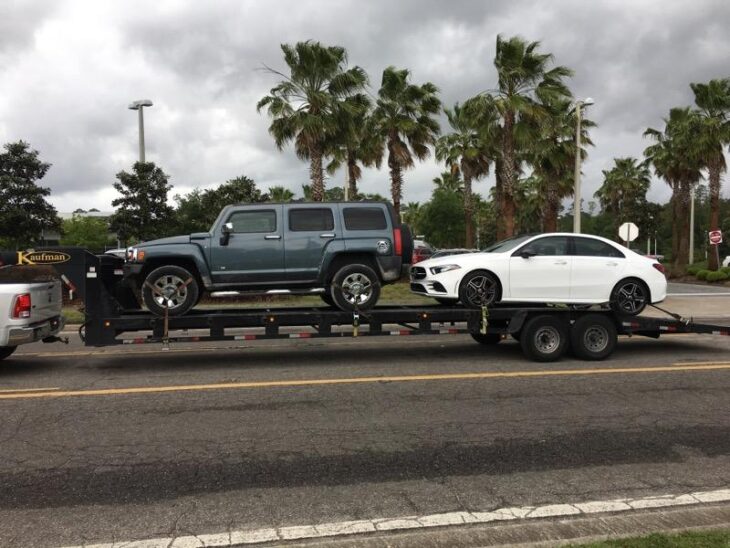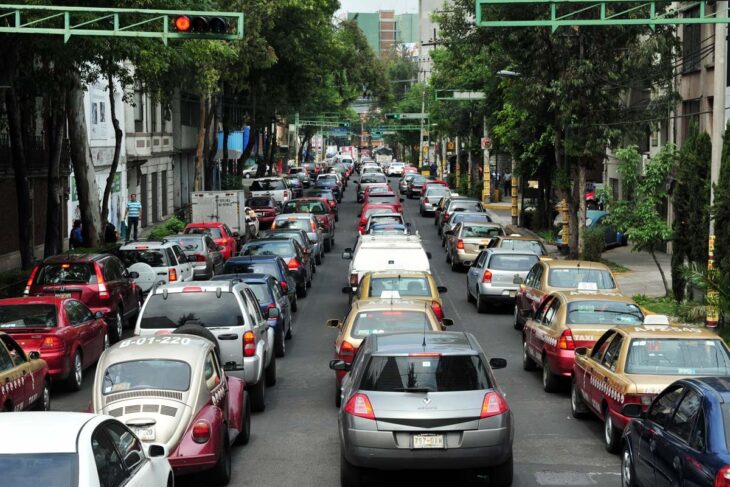Many people dream of packing up their entire lives into boxes and moving all at once. However, various factors might put the brakes on your long-distance relocation. The most common reason for a relocation roadblock is the distance of the move. Sometimes, people have to choose between a local or long-distance move due to a new job or family obligations.
Local moves are usually within fifty miles, while longer moves are anywhere from one hundred miles away to over one thousand miles away. Before you begin making plans, check out some of the most vital differences between the two moves.

Source: autotransport.com
Contents
Transporting your vehicle
Some people have to find a way of moving all their belongings without the help of a personal vehicle. If you own a car, it can help with your local move, and there’s no need to worry about making arrangements for it. If you’re only moving fifty miles, you can simply drive to your new home.
However, when individuals make long-distance moves, they may have a dilemma about transporting their vehicle.
When you make a long-distance move, it is more costly to travel with your vehicle because of gas prices, lodging, and wear-and-tear. Shipping your vehicle often makes more sense for long-distance relocations. For more information on how to transport a car from one state to another, check out resources like this.
Overall cost
One of the most common factors a person needs to think about is the price of moving. Local moves are typically much shorter distances and thus less expensive. One reason for this price discrepancy is that it requires less equipment, time, and money to move locally.
You must account for gas prices because fuel can be expensive on long road trips. It’s a more manageable expense on a local move, though.
Another factor that can affect the price is when you’re packing up your home. If you are doing most of the work yourself, it will take less time and require fewer resources. You can save yourself a lot of money by purchasing boxes from a local shop instead of having them delivered to your home.
You will most likely need more boxes for a long-distance move, especially when using a moving service.
Mileage costs with movers add up the farther away your destination is. If a moving company declares your move long-distance, they will likely give you a linehaul charge. A linehaul charge is a basic charge for long-distance moves. The mileage and weight of your items calculate this charge.

Source: inman.com
Distance and time
The most significant difference between a local move and a long-distance one is distance. Some say a long-distance move is anything over one hundred miles. A local move is fifty miles or anything within the same state. While other details can vary, such as total price or time spent moving, none of these factors compare to the length of your actual move.
A much longer move may require at least one or two days for packing, moving, and unpacking. It may also involve finding temporary accommodations during the journey. You might even encounter tons of tolls and traffic jams that would cause more delays, or you may have to take a flight.
In comparison, local moves don’t take as long. You can travel to your new place in minutes or an hour.
Packing and loading details
Take into consideration how much effort goes into packing and loading your items. Since local moves are shorter, the process can be quicker and easier than it would be for a long-distance one.
Longer moves require more time to pack up and load all of your items onto the truck. You can avoid this time delay by hiring a company that provides low-cost services to pack and load your items for you. If you don’t have enough people helping you, some companies will send out more workers to accommodate the extra weight of all your belongings.
It may be even faster and easier for you to pack your items yourself for a local move, especially if you already have a system in place that works for you. Friends and family are more likely to help during a local move.
Depending on how much stuff and friends you have, you may be able to move without professional moving help unless you have large pieces of furniture. With a local move, you can transport and unload items over a series of days until your stuff is gone out of the old house. However, a long-distance move requires a more set moving time and system.

Source: azbigmedia.com
Faster delivery to your new home
In a long-distance move, you may arrive at your new home and wait a while for your items to arrive. It can take as much as a week or two, depending on how far your move. A local move is better when you need your items immediately because you can quickly drive them from one spot to another yourself.
Familiarity with city streets
You can take a more direct route to your new place when making a local move. It won’t involve as much unfamiliar territory, which decreases the chances of getting lost.
With local moving companies, the moving manager is within the same vicinity. So any moving professionals you hire will also be more familiar with the area and transport your belongings with fewer hiccups.
It’s possible to get lost during a long-distance move if your movers are unfamiliar with the streets of your new city. On your end, you have a greater likelihood of getting lost while driving if you are going very far. Plus, you may have to deal with the stress (and excitement) of a new locale upon arrival.

Source: geographical.co.uk
Final thought
Moving requires work and time, no matter where you are going, and you have to think about distance, cost, time, vehicle transport, and more. While a long-distance move may have more factors to consider, it doesn’t necessarily have to be more complicated or stressful than a local one. It all comes down to what type of service you require, how much space your items take up, and the number of people available to help you.
